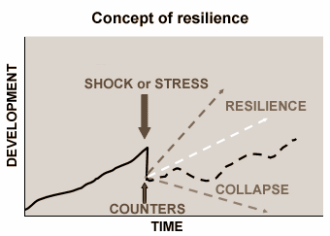|
Definition: "An ergogenic aid is any substance or phenomenon that enhances performance "
|
|
||||||||
14.04.2011 |
|
|
Nonagenarians with resilience will make it to 100
Even if you've already reached a ripe old age, psychological traits still determine whether you'll live longer. Researchers at Duke University have shown that people in their nineties who persevere have a 40 to 80 percent greater chance of reaching 100 than people of the same age who do not have this characteristic.
Psychologists call it resilience, the ability to face setbacks. Resilience is a broader term than optimism and toughness, although both these characteristics are part of resilience.
One of the first psychologists to use the term was the American Emmy Werner. In the seventies Werner studied children who grew up in poor neighbourhoods, in an environment where alcohol addiction, psychiatric disorders, criminality and broken families were the norm. Most of the children ended up being as bad parents as they had had themselves.
But in about 1 in 3 children this was not the case. Despite all the problems they had endured, they became loving, capable and self-assured fathers and mothers. They had a set of psychological traits that enabled them to withstand their disturbed childhood and rise above it. This is the set of characteristics that Werner termed resilience.
The researchers were curious to know whether resilience is also a factor in the elderly and whether it plays a role in reaching very old age. They used data that had been gathered in the Chinese Longitudinal Healthy Longevity Survey. For this demographers have been following a group of 16,566 people over the age of 65 since 1998. This study is interesting because it contains a large number of people who are extremely old. The researchers had data on 4,596 people in their nineties and 3,413 centenarians.
All of the nonagenarians had completed questionnaires which enabled the researchers to estimate their resilience. The questions are shown below. Then the researchers looked at whether the level of resilience of the nonagenarians could predict whether they'd live to be 100.
If you look at the table above at first glance it shows that resilience increased the likelihood of reaching 100 by 74.6 percent. When the researchers filtered out the influence of social factors like income, the likelihood rose even further to 87.7 percent. [Model 2] Lastly the researchers also filtered out the effect of health. Then it turned out that resilience raised the chance of nonagenarians reaching 100 is still 43.1 percent higher. [Model 3]
The last correction probably underestimates the effect of resilience, the researchers think. People with a positive attitude towards life tend live more healthily and are therefore more healthy, "and better health increases the probability of survival".
Another factor is that "resilient individuals are more likely to hold positive emotions, which promotes both resistance to and recovery from stress and thus contributes to better health and longevity".
Source:
More:
|
|



